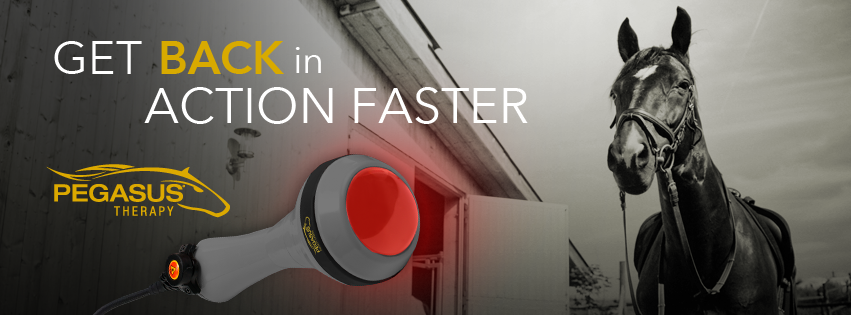Reviewing the Efficiency of Laser Treatment in Equine Therapy for Injury Rehabilitation
The assessment of laser therapy's efficiency in equine injury rehabilitation pivots on multiple elements, consisting of recovery time, pain mitigation, and cells regrowth. Scientific studies suggest significant improvements in conditions like tendonitis and osteoarthritis, connected to boosted cellular function and elevated ATP manufacturing. Vets frequently observe remarkable end results with laser treatment compared to conventional techniques, placing it as an essential aspect in equine care. Nonetheless, the need for continual monitoring and customized therapy plans can not be overstated. What certain clinical proof sustains these insurance claims, and just how do vets execute these methods in method?
Comprehending Laser Therapy
Laser treatment has actually ended up being a critical device in vet medication, especially in the treatment of equine problems. Recognized for its non-invasive nature and effectiveness, laser therapy involves the application of details wavelengths of light to promote tissue repair and lower swelling. This restorative modality is significantly preferred for its ability to accelerate the recovery process in steeds struggling with a range of bone and joint injuries and persistent conditions.
The main device behind laser treatment is its ability to improve mobile functions. Additionally, laser therapy advertises vasodilation, boosting blood circulation and oxygen delivery to damaged tissues, therefore quickening recovery.
In equine medicine, laser therapy is especially valuable for conditions such as tendonitis, osteoarthritis, and wound recovery. The strategy is admired for its pain-relieving properties, allowing horses to restore wheelchair and feature a lot more swiftly. Vets additionally value its marginal negative effects compared to other therapy modalities, making it a reputable and risk-free choice for equine treatment.

Just How Laser Treatment Functions

Upon absorption, these photons set off a series of biochemical changes, boosting mitochondrial function and leading to raised adenosine triphosphate (ATP) manufacturing. This rise in ATP increases mobile metabolism, advertising cells repair work and regrowth. Furthermore, laser therapy modulates inflammatory actions by influencing cytokine degrees and reducing oxidative anxiety, thereby reducing discomfort and swelling.
One more substantial facet of laser treatment is its role in boosting microcirculation. The therapy promotes vasodilation, improving blood circulation and oxygen distribution to damaged tissues (Equine Therapy). This facilitates the elimination of cellular debris and sustains the expansion of fibroblasts and collagen synthesis, essential for wound recovery
Clinical Proof
The efficacy of laser treatment in equine treatment has actually been corroborated via different professional researches, showcasing its restorative prospective across a variety of problems. A research study carried out by Turner et al. (2012) demonstrated that horses treated with low-level laser treatment (LLLT) for ligament injuries displayed accelerated recovery contrasted to those obtaining standard therapies.
Likewise, research by visit the site Johnson and coworkers (2015) concentrated on equine muscle injuries, revealing that laser treatment dramatically sped up muscular tissue fiber regrowth and decreased muscle tightness. These findings were corroborated by histological evaluations showing improved muscle cells organization. Scientific assessments have actually shown that laser treatment can ease persistent conditions such as osteo arthritis. A study by Smith et al. (2018) reported that horses with osteoarthritic joints experienced remarkable discomfort alleviation and boosted variety of motion following a program of laser therapy sessions.
Veterinarian Insights

Vets also appreciate the convenience of laser treatment. She directs out that laser therapy can be customized to the particular needs of each steed, his response guaranteeing ideal end results.
Additionally, veterinarians value the ability to incorporate laser treatment with other therapy methods. This multimodal technique can improve total treatment efficacy, offering an extensive option for equine recovery. Such endorsements from seasoned specialists highlight the expanding acceptance and application of laser therapy in equine medicine.
Practical Considerations
A key aspect of applying laser treatment in equine therapy involves understanding the useful considerations that guarantee its efficiency and safety. It is important to choose the ideal laser device, as different kinds vary in wavelength, power, and penetration deepness. Veterinarians must be skilled in these parameters to customize therapy procedures effectively to every injury type
Additionally, the regularity and duration of laser therapy sessions require careful planning to make best use of therapeutic advantages while decreasing any potential unfavorable impacts. Constant surveillance of the equine's feedback to treatment can lead required modifications in the treatment regimen. Establishing a safe and controlled setting during therapies is likewise important to avoid accidental exposure to laser emissions, which can harm both the equine and the handler.
Educating and certification of personnel providing laser therapy are paramount to guarantee appropriate technique and to maintain safety criteria. Furthermore, maintaining precise documents of each session, including laser setups and observed end results, is crucial for reviewing the general efficiency of the treatment and for making data-driven choices.
Final Thought
Laser treatment has emerged as an effective method in equine injury rehab, offering significant benefits in recuperation time, pain alleviation, and tissue healing. For optimal outcomes, continuous tracking and individualized therapy protocols continue to be vital in leveraging the complete capacity of laser treatment in equine care.
Comments on “Discover the Amazing Advantages of Equine Therapy for Psychological Recovery”